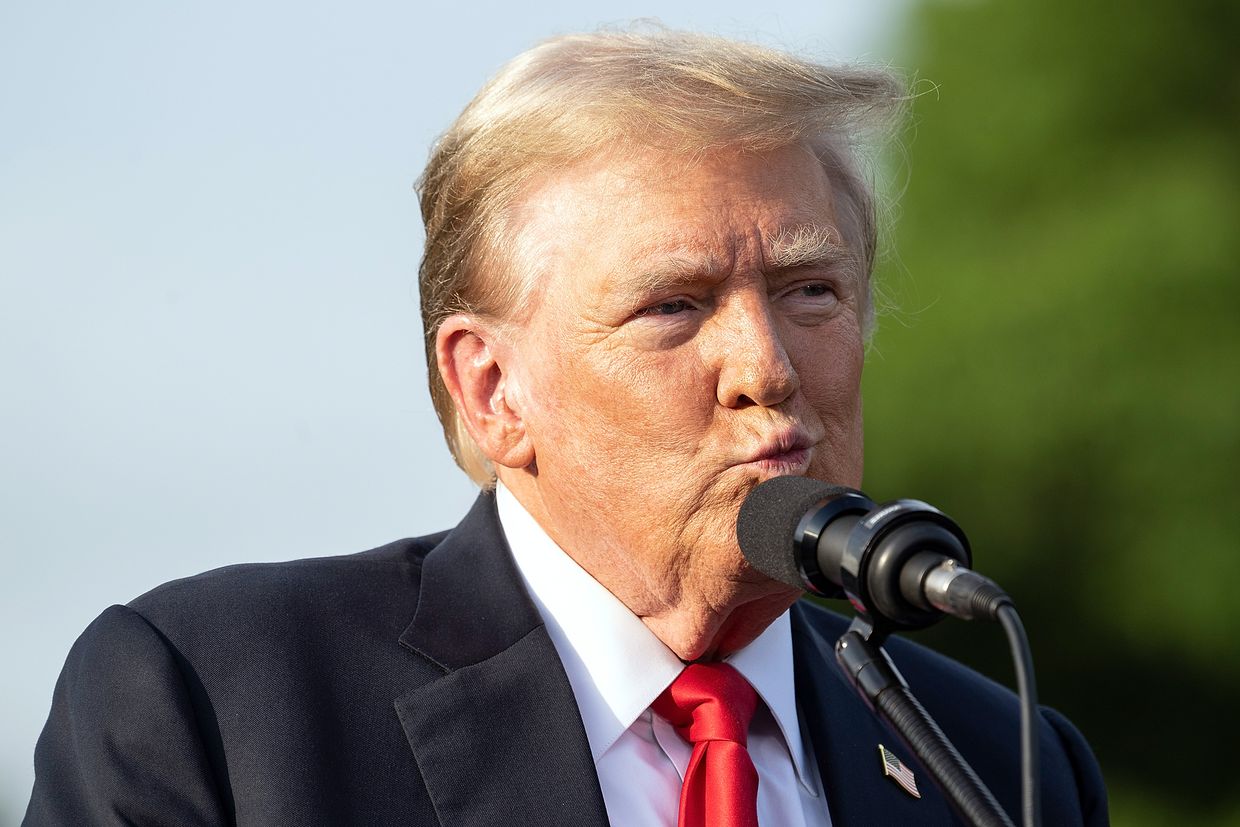Top Trump advisors prepare plan for US to halt military aid to Ukraine unless it agrees to peace talks

Two top advisors to former U.S. President Donald Trump have proposed a plan that would cease military aid to Ukraine unless it agrees to hold peace negotiations with Russia, Reuters reported on June 25, citing the advisors, retired General Keith Kellogg and Fred Fleitz.
Trump, who is the presumptive Republican nominee for president, has repeatedly suggested that he would end the war within 24 hours if elected, but has so far refrained from detailing the specifics of his plan.
Kellogg and Fleitz, who previously served on the National Security Council in the Trump administration, said the proposed ceasefire would freeze the frontlines in their current position.
At the same time, Kellogg said the plan would entail additional warnings to Russia that the U.S. would increase its military support to Ukraine if it refused the terms of the ceasefire.
Fleitz said Trump reacted positively to the plan but added, "I'm not claiming he agreed with it or agreed with every word of it."
Trump campaign spokesperson Steven Cheung nonetheless emphasized that only statements from Trump or the campaign should be taken as official policy positions.
Many of the details of the plan were published in a policy paper released by the Trump-affiliated America First Policy Institute in April. One of the elements of the paper was that Ukraine's NATO accession would be taken off the table for "an extended period in exchange for a comprehensive and verifiable peace deal with security guarantees."
President Volodymyr Zelensky and other Ukrainian officials have pushed back against the notion of such a ceasefire that would cement Russian battlefield gains.
"And there will be many such conditions, depending on how strong (Russian President Vladimir Putin) is at that moment. Therefore, a ceasefire is a trap," Zelensky said earlier in June.
Putin recently explicitly outlined his own ceasefire conditions, which included Ukraine's complete withdrawal from Donetsk, Luhansk, Kherson, and Zaporizhzhia oblasts and abandoning any future NATO ambitions. Such a plan would entail Ukraine ceding significant parts of its territory that it currently controls.
The paper by Kellogg and Fleitz also repeatedly referenced the unsubstantiated theory that NATO expansion triggered Russia's full-scale invasion, which Trump also mentioned in an interview earlier in June.
Kellogg and Fleitz also reiterated another misconstrued argument from Trump, in which he claimed that President Joe Biden had said, "Ukraine will go into NATO" in the leadup to the full-scale invasion. Trump claimed that it had unnecessarily antagonized Russia.
"Biden's approach ignored Putin's fear of Ukraine moving closer to the West and joining NATO," Kellog and Fleitz wrote.
Kellogg and Fleitz acknowledged that "Biden and his senior officials never explicitly called for Ukraine to join NATO," but said that "they dangled NATO membership before Ukraine and repeatedly said this decision was up to Ukraine."
Similar statements were also made by officials in the Trump administration, such as former Secretary of State Mike Pompeo's assertion in January 2020 that "we have maintained support for Ukraine's efforts to join NATO."
"We will never accept anything less than the full restoration of Ukraine's control over its sovereign territory," Pompeo added in the same speech.
Kellogg served in the Trump administration at the time.











